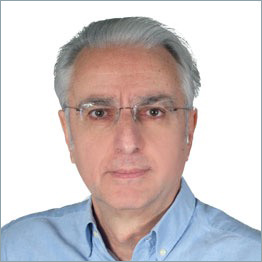Professor Theodoros Kevrekidis, Democritus University of Thrace and Professor Paraskevi Malea, Aristotle University of Thessaloniki, will present Posidonia oceanica meadows through a series of interactive workshops.
The action is part of the research project “Engaging primary and secondary school students in marine sciences issues”, which was supported by the Hellenic Foundation for Research and Innovation (HEFRI) under the 3rd Call for Action “Science and Society” entitled “Research, Innovation and Dissemination Hubs.”
Exploring Seagrass Meadows
Workshops
Over the last century, human activities have negatively impacted the marine environment. To continue to benefit from its services and goods, citizens need to be aware of its secrets and the impact of their actions on it.
The project will be implemented through hands-on workshops and sample presentation and analysis.
Τhis action will be a part of the pre-event educational programmers
Age groups:
1. Kindergarten to Second Grade, 2. Third to Sixth Grade. 3. Middle School / High School.
C. Two teaching hours per age group.
D. On the first of the two days, the activities will focus on the first two age groups, while on the second day, they will target the other two (middle school and high school).
Marine angiosperms are flowering plants that live fully submerged, developing a root system in marine environments. They are found in all coastal areas of the world, except for the Antarctic coast, forming extensive submarine meadows. In Greek coastal waters, there are four species of marine angiosperms. One of the most common is neptune grass (Posidonia oceanica). Posidonia oceanica grows only in the Mediterranean Sea, and is an emblematic, widespread and well-known species of marine angiosperms in the Mediterranean Sea. It occurs at depths of up to about 45 m on sandy bottoms. Its meadows are considered one of the climax communities of the Mediterranean.
Posidonia oceanica, like other species of marine angiosperms, has a high value for the environment. They provide food for a variety of food webs. Their meadows serve as habitat, nursery and shelter various invertebrates, fish and mammals. Marine angiosperms produce oxygen through photosynthesis, thus supporting fauna communities, explaining why they are known as 'the lungs of the sea'. Marine angiosperm meadows are characterized by a high carbon uptake and storage capacity, and are an important carbon sink in the ocean, thus mitigating climate change and regulating ocean acidification. For this reason, together with mangrove forests and salt marshes, they are known as 'blue carbon' ecosystems. Marine angiosperms also stabilize the seabed and improve seawater quality.
Posidonia oceanica, like other marine angiosperms, is of high value to humans. They affect the life of every human being. They contribute to global well-being by supporting marine biodiversity and endangered species, purifying seawater, preventing disease, producing oxygen and mitigating climate change and the effects of ocean acidification. Marine angiosperms protect coastal areas from erosion, flooding and stormy surge, and support global fisheries. They provide food, medicines and materials and can be used as energy resources. Marine angiosperm beds offer opportunities for recreational activities such as snorkeling, diving and fishing. They are a source of inspiration and discovery and are an integral part of the cultural heritage of many people.
However, human development and activity are leading to a loss of marine angiosperms worldwide. Approximately 20% of the world's marine angiosperm area has been lost since the late 19th century and this trend is projected to continue. In particular, Posidonia oceanica is very vulnerable to anthropogenic pressures. The main threats include urban, agricultural and industrial runoff, coastal development, unregulated fishing and recreational boating activities, dredging and climate change.
Marine angiosperms, especially Posidonia oceanica, are protected by the European Union and Greek national legislation, as well as by international conventions. However, legislation and policies should more effectively support actions that prevent further losses of Posidonia oceanica, and other marine angiosperms. The management, conservation and restoration of marine angiosperms can reverse the degradation of their ecosystems. Education about marine angiosperms and public awareness can contribute to their protection.
We are all responsible for the health of Posidonia oceanica and other marine angiosperms. Marine angiosperms are unique plants that support a wide variety of life, and people should live in ways that ensure their sustainability. Effective management requires individual and collective action for the benefit of all.
Presentation by Professor Theodoros Kevrekidis and Professor Paraskevi Malea, Saturday 12/10 at 17:00.




Democritus University of Thrace is classified among the biggest Greek Universities in terms of the number of its active student population. Geographically dispersed throughout Thrace, with 10 Faculties, 28 Departments and a wide variety of Postgraduate Programs, with a student population that reaches approximately 42,000 (undergraduate, graduate students and candidate PhD students) and with a research and teaching staff that exceeds 700 people, the university still is the only academic institution in the Administrative Region of East Macedonia & Thrace. The outline of the course curricula on offer covers the majority of modern scientific subjects starting from the School of Agricultural and Forestry Sciences in Orestiada, the Schools of Health Sciences and Education Studies in Alexandoupolis, the Schools of Law, Classical and Humanity Studies, Social, Political and Economic Studies and the School of Physical Education and Sports in Komotini to the Polytechnic School in Xanthi and the Schools of Exact Sciences and the School of Administration Science and Accounting in Kavala. Obviously, the education provided and the research undertaken at the university are both highly multi-faceted.
Hellenic Foundation for Research and Innovation (HEFRI)
The Hellenic Foundation for Research and Innovation (HEFRI), since its establishment in 2016, has significantly contributed to the promotion of Research and Innovation in Greece, having published twenty-six (26) Calls, until now. Throughout these years, its role has proven to be crucial for the development and strengthening of basic research in the country. What makes the HEFRI stand out is the fact that for the first time, the scientific and academic community itself is actively involved in shaping the country’s research and innovation policy, without setting thematic and geographical restrictions.
The HEFRI supports unrestricted research (the systematic inquiry resulting from scientific curiosity), as well as new researchers aiming to reverse the outflow of outstanding scientists abroad.
To achieve its purpose and objectives, the HEFRI grants scholarships for PhD candidates, funds Research Projects for the support of Postdoctoral Researchers, Faculty Members, and Researchers, Actions whose aim is to connect Science with Society and Emblematic Actions, as well as funds the procurement of high-value research equipment, having as its sole criterion scientific quality and excellence.
 Theodoros Kevrekidis is a Professor at the Democritus University of Thrace, Greece with a BSc in Biology and a PhD in Marine Biology. At present, Prof. Kevrekidis is the Head of the Laboratory of Environmental Research and Education of the Democritus University of Thrace.
His current research focus areas are the ecology and ecophysiology of seagrasses and marine macroalgae, the biology of marine macroinvertebrates, the structure and dynamics of marine macrozoobenthos, and the estimation of the ecological status of coastal and transitional waters using biotic indices.
His research also focuses on ocean literacy. This work has led to the publication of more than 70 ISI-listed, peer-reviewed papers.
Theodoros Kevrekidis is a Professor at the Democritus University of Thrace, Greece with a BSc in Biology and a PhD in Marine Biology. At present, Prof. Kevrekidis is the Head of the Laboratory of Environmental Research and Education of the Democritus University of Thrace.
His current research focus areas are the ecology and ecophysiology of seagrasses and marine macroalgae, the biology of marine macroinvertebrates, the structure and dynamics of marine macrozoobenthos, and the estimation of the ecological status of coastal and transitional waters using biotic indices.
His research also focuses on ocean literacy. This work has led to the publication of more than 70 ISI-listed, peer-reviewed papers.  Paraskevi Malea is a Professor at the School of Biology of the Aristotle University of Thessaloniki, Greece with a PhD in Marine Biology and a BSc in Biology.
At present, Dr Malea is the Head of the Institute of Botany of the Aristotle University of Thessaloniki. Her specialist research field is the ecology and ecophysiology of seagrasses and seaweeds. Current research focuses on the assessment of the ecological status of coastal and transitional waters using biotic indices based on seagrasses (e.g., Posidonia oceanica).
Her research also focuses on metal accumulation and bioindication in seagrasses and seaweeds, as well as on morphological, physiological and cellular responses of these organisms to stress induced by anthropogenic chemicals and the detection of biomarkers for the evaluation of environmental quality.
This work has led to the publication of more than 70 ISI-listed, peer-reviewed papers.
Paraskevi Malea is a Professor at the School of Biology of the Aristotle University of Thessaloniki, Greece with a PhD in Marine Biology and a BSc in Biology.
At present, Dr Malea is the Head of the Institute of Botany of the Aristotle University of Thessaloniki. Her specialist research field is the ecology and ecophysiology of seagrasses and seaweeds. Current research focuses on the assessment of the ecological status of coastal and transitional waters using biotic indices based on seagrasses (e.g., Posidonia oceanica).
Her research also focuses on metal accumulation and bioindication in seagrasses and seaweeds, as well as on morphological, physiological and cellular responses of these organisms to stress induced by anthropogenic chemicals and the detection of biomarkers for the evaluation of environmental quality.
This work has led to the publication of more than 70 ISI-listed, peer-reviewed papers. 




